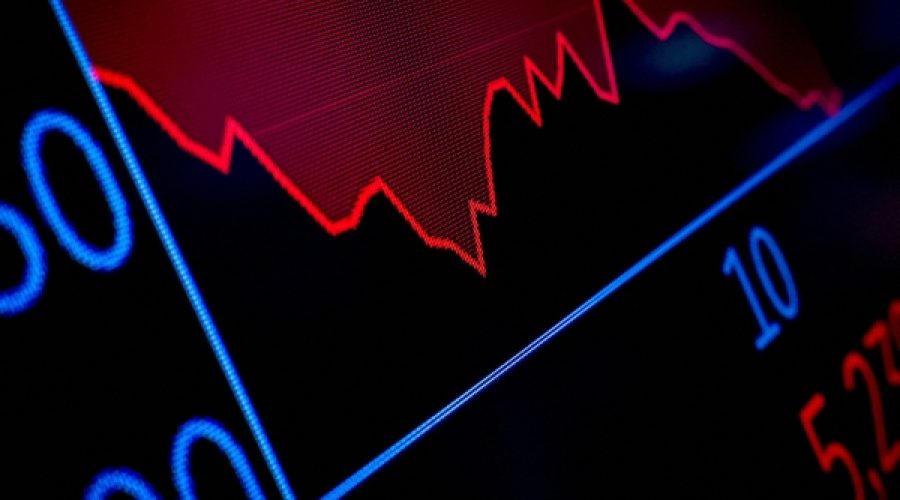Tech Market Slide: What Investors and Business Owners Need to Know About the Impact on Your Portfolio and Strategy
Hong Kong – Global markets fell sharply on Friday, following a selloff on Wall Street amid growing uncertainty over the Federal Reserve’s interest rate decision due next month and ongoing concerns about a potential tech bubble.
With the US government shutdown resolved, investor attention has shifted back to the Fed’s upcoming policy meeting, where officials will determine whether to further reduce borrowing costs.
Throughout the year, equity markets have been supported by expectations of rate cuts despite persistent inflation. The Fed delivered cuts at its last two meetings, fueling optimism. However, Fed Chair Jerome Powell’s recent remarks that a December rate cut is not “a foregone conclusion” have introduced caution. Several other Fed officials have echoed this sentiment.
This week, three regional Fed presidents expressed concerns about lowering rates while inflation remains high.
Alberto Musalem of St. Louis urged “caution,” noting “there’s limited room for further easing without monetary policy becoming overly accommodative.” Neel Kashkari of Minneapolis, who supported a pause in October, pointed to “underlying resilience in economic activity, more than I had expected.” Beth Hammack of Cleveland told the Pittsburgh Economic Club that rates should remain “somewhat restrictive” to continue pressuring inflation down, describing current levels as “barely restrictive, if at all.”
Investor focus is now also on upcoming economic data delayed by the recent government shutdown, especially jobs and inflation figures, though some reports are expected to be partial.
Chris Weston of Pepperstone highlighted a shift in market expectations, noting a 52 percent chance of a 25 basis point rate cut on December 10, down from 60 percent the previous day.
The more cautious outlook on rates has intensified concerns that the tech sector may be overvalued following an AI-driven surge that propelled markets to record highs. Analysts warn that the significant investments poured into artificial intelligence may take time to generate profits.
Weston pointed to chip giant Nvidia’s upcoming earnings report as a critical event, suggesting it could prompt traders to reduce risk, secure gains, and await clearer market direction before year-end.
All three major Wall Street indices closed notably lower on Friday: the tech-heavy Nasdaq dropped over 2 percent, while the Dow Jones and S&P 500 each fell by 1.7 percent.
Asian markets, after a generally positive week, also saw declines. Tokyo, Hong Kong, Sydney, Singapore, Wellington, Bangkok, and Taipei all dropped at least 1 percent. Seoul, which recently hit multiple tech-driven records, fell nearly 4 percent, while Manila lost more than 2 percent. Mumbai likewise experienced losses.
European markets extended losses from Thursday, with London, Paris, and Frankfurt all down. Shanghai’s market was also pressured after data revealed Chinese retail sales growth slowed for the fifth consecutive month in October, underscoring ongoing challenges in reviving consumption in the world’s second-largest economy.
Meanwhile, oil prices surged over 1 percent following a warning from the International Energy Agency (IEA) about risks to Russian oil output caused by stringent US sanctions targeting the country’s two largest producers. The IEA described these sanctions as potentially having “the most far-reaching impact yet on global oil markets.” The rise in oil prices came shortly after a sharp decline triggered by OPEC’s monthly report forecasting a crude supply surplus in the third quarter.
This complex mix of economic indicators and geopolitical factors continues to shape a cautious global investment climate.
Special Analysis by Omanet | Navigate Oman’s Market
The heightened uncertainty over the Federal Reserve’s next move and the cooling tech bubble signal potential market volatility ahead, which could affect global investor confidence and capital flows into Oman. Smart investors and entrepreneurs should brace for cautious positioning, focusing on sectors resilient to interest rate fluctuations and inflationary pressures. Additionally, with oil markets showing volatility due to geopolitical tensions, Oman’s energy sector remains a critical area for strategic investment and risk management.



